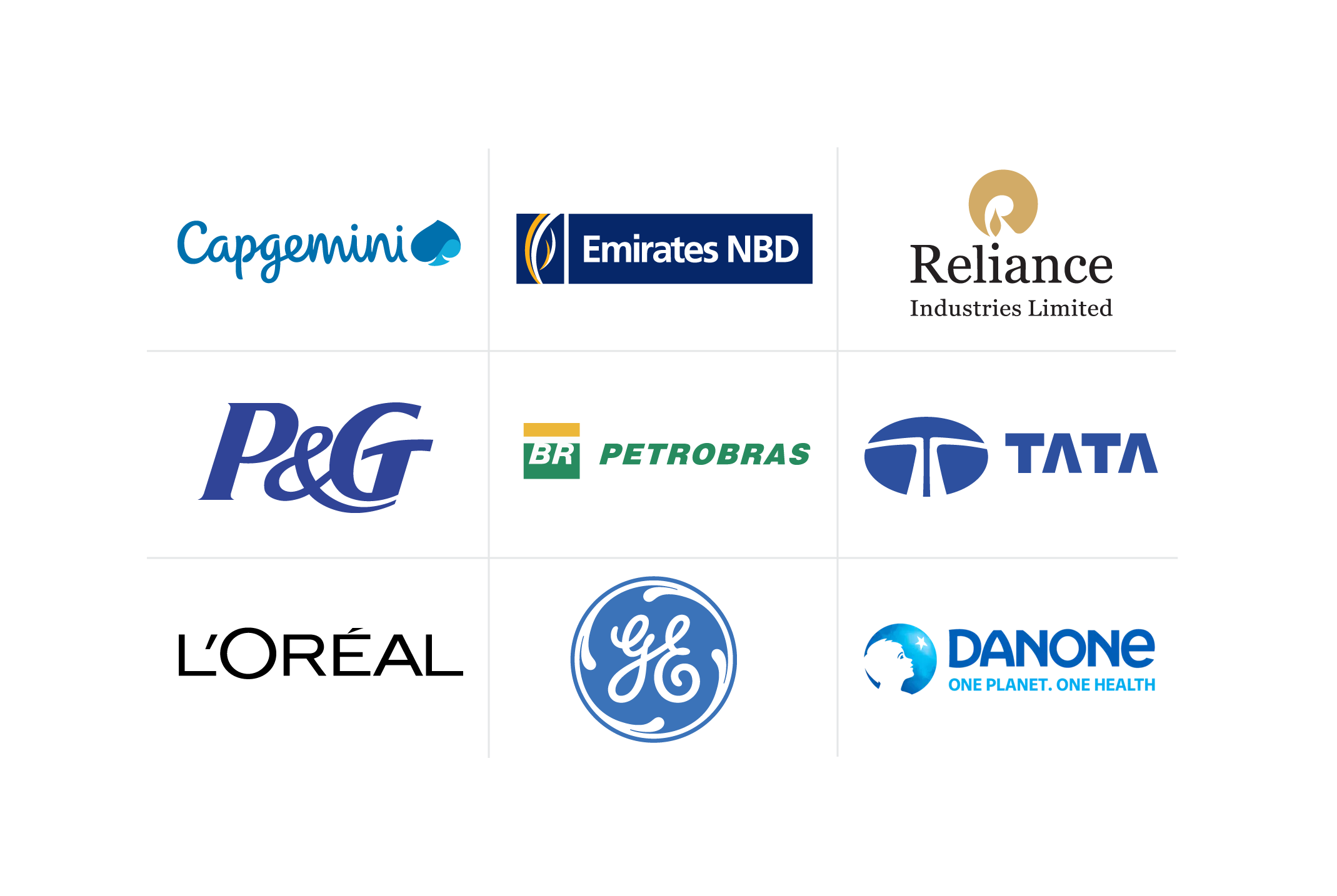Unlocking Employee Engagement: A Deep Dive into Stay Interview Questions
When conducted correctly, a stay interview might help you reduce turnover rates, resolve employee experience issues, and create a more positive company culture. Learn more about what it is and the questions you should ask when conducting one.
![[Featured Image] Two businesswomen are in a meeting, with one smiling as she answers stay interview questions designed to improve employee retention and engagement.](https://d3njjcbhbojbot.cloudfront.net/api/utilities/v1/imageproxy/https://images.ctfassets.net/2pudprfttvy6/6tMsGknhI8LtpdsaPh86UP/46c717e083ce2146adc8cd654b792316/GettyImages-1007651792.jpg?w=1500&h=680&q=60&fit=fill&f=faces&fm=jpg&fl=progressive&auto=format%2Ccompress&dpr=1&w=1000)
Employee retention offers numerous benefits. It can lower hiring costs, help you build a highly skilled workforce, create a positive company culture, and strengthen your reputation among customers, employees, and potential future hires. One reason why employees often stay with organizations is that their managers prioritize employee engagement.
When you invite your staff to provide feedback and ideas about your company's goals and operations, they feel like valuable team members, which can lead to them sticking around longer. Asking high-quality stay interview questions is an excellent place to start when you want to improve employee engagement and, therefore, employee retention.
Read more: Top Strategies for Retaining Talent Today
What is a stay interview?
A stay interview is a short—usually about 30 minutes—and candid conversation that managers and supervisors have with employees to understand their opinions of the organization better. During these interviews, you can ask basic questions about the employee's day-to-day experiences, what they like and dislike, and their expectations for the future. These are not performance reviews and do not affect payment, benefits, or promotions.
Stay interviews are often conducted with employees who have been around for a while and perform well for your organization. Ideally, you'll want to interview all established employees if you have the resources to do so. You can also integrate them into quarterly reviews or as an informal conversation held anytime. Their unique answers can help you understand why they stay, what you're doing to encourage that, and what you could do better to improve employee retention. Collecting all of the data within a couple of weeks of one another means you can act on it quicker, improving the employee experience in general.
Ideally, you'll want to conduct stay interviews once or twice a year. The stay interview process often helps facilitate open lines of communication between management and employees, another essential key to employee retention.
What are the benefits and disadvantages of stay interviews?
Many employers view stay interviews as a positive way to increase employee engagement. However, as with any employee retention effort, you’ll discover advantages and disadvantages. Some of the pros might include:
Invigorating employees and letting them know leadership cares about their experiences
Gathering valuable information you can use to improve business processes
Improving the relationship between employees and management
Increasing employee engagement for enhanced retention
Reducing employee turnover and saving on recruiting costs
Discovering potential new opportunities for employees seeking professional development
Discovering problems employees encounter so you can come up with solutions
Building an employee's trust in your organization
Reasons why you might avoid stay interviews could include:
Some employees may view them as an invasion of privacy or questioning their commitment.
Some managers may need to gain the skills to conduct the interview properly. For example, the interview might feel like an interrogation or too organization-focused rather than employee-focused. They might need more training in conducting these interviews to ask proper questions and obtain valuable data.
Stay interviews can be time-consuming.
Once you start conducting stay interviews, you'll need the time and resources to perform them regularly.
Some issues presented during these interviews may be beyond your control.
Sometimes, a stay interview could help an employee decide to leave your organization, especially if issues they raise are unresolvable.
6 common stay interview questions and why you should ask them
When conducting a stay interview, you aim to understand better why an employee stays with your organization. Simply asking, "What can we do to keep you here?" isn't enough. Asking probing questions designed to help you make informed decisions about your company's culture, operations, and growth is imperative. You must ask high-quality questions that welcome open-ended answers that you can use to improve employee retention. Asking four or five of the following is a great place to start.
1. What excites you when coming to work each day?
Why you should ask it: This question can help you understand employee motivation and the elements that make them want to keep coming to work at your organization.
Asking a question like this allows employees to talk about their experience rather than simply answering yes or no. While the employee will likely speak about personal motivators, they can give you some insight into what you're doing right. For example, they may explain that they enjoy the environment because you have a positive company culture. They might also talk about how much they like their job because you provide them with the resources they need to do it, or you allow them unlimited autonomy and independence.
2. Is there something new you'd like to learn or try here this year?
Why you should ask it: Even if your employee doesn't have an answer to this question, it might help frame their mindset towards a future with your company.
If they have an answer, it can provide insight into what you can do to help support employees’ professional development. For example, they may like to shadow someone in a new department or take online courses to learn new skills. They might even like to learn a new role to eventually seek a promotion.
3. How do you feel about the way we recognize your contributions to this organization?
Why you should ask it: When your employees put in some extra effort, providing proper recognition amplifies positive feelings.
Conversely, when those efforts aren’t recognized, employees likely develop less-than-positive feelings about them. By asking this question, you allow them to let you know what you could do better, which can lead to the creation of new rewards programs or more individualized incentives. You might even discover a divide among your employees. For example, those who work remotely may feel unappreciated compared to those in the office five days a week.
4. Tell me about a good day and a bad day you've had here recently.
Why you should ask it: This question can help you understand what works well and the elements needing improvement at the organization.
It also should encourage your employees to come up with specific examples. You should also notice how they react. If they're unable to come up with an example of a good day or it takes a while, this could be a sign that the employee experience needs improving, while the inability to come up with an example of a bad day could mean you're doing something right. When they tell you about a bad day, follow up by asking what you could do to help them avoid that type of bad day.
5. How does your role here compare to your last job?
Why you should ask it: Answers to this question provide valuable details about how to improve the employee experience.
This question also encourages more specific answers. Encourage employees to give both positives and negatives. For example, an employee may say they miss the flexibility they had to work a hybrid schedule at their old job, but they might say they make more money or have better benefits with your organization. Take note of their answers, and ask them what you could do to make the negatives more positive. If the employee doesn't have a previous job or you're uncomfortable with this question, you can ask them, “If you could change one thing about your role in this organization, what would it be?” You will likely receive similar answers.
6. What could we do to support you better at work?
Why you should ask it: The answers can identify employees’ pain points to improve the overall employee experience.
If your employees have any major frustrations, this question will usually help them get to the root of them. Make sure you listen carefully so the employee feels valued. When they make a suggestion, talk through specific things you can do to make it better.
Read more: Top Strategies to Build Employee Engagement
Tips for conducting a stay interview
Conducting a stay interview can be a quick and easy process. It’s helpful to keep some suggestions in mind to make it successful. These might include:
Make sure an employee's direct supervisor or manager conducts the interview.
Focus on employees who have been with the company the longest.
Ask questions that encourage answers beyond a simple yes or no.
Keep your interview short and informal—no more than 30 minutes.
Ensure employees walk away feeling that they're a vital part of the company.
Be honest and welcoming of all types of communication, even critical statements.
Take notes and ask follow-up questions.
Ensure you follow up on any suggestions or problems arising during the interviews.
Use active listening skills, like eye contact and repeating answers back to them, to show your employees that you genuinely care about their answers.
Getting started with Coursera
A high-quality stay interview can help you improve critical issues like employee engagement and retention. One of the keys to a successful stay interview is ensuring your managers and supervisors have the tools to conduct a proper interview. One way to do that is by encouraging them to improve their interview skills with options like online courses. On Coursera, you'll find several options that can help with that and other aspects of human resources, each offered by some of the top schools and businesses in the world. Consider options like The Art of the Job Interview, offered by Big Interview, Successful Interviewing from the University of Maryland, and Goldman Sachs 10,000 Women’s Fundamentals of Management.
This content has been made available for informational purposes only. Learners are advised to conduct additional research to ensure that courses and other credentials pursued meet their personal, professional, and financial goals.


